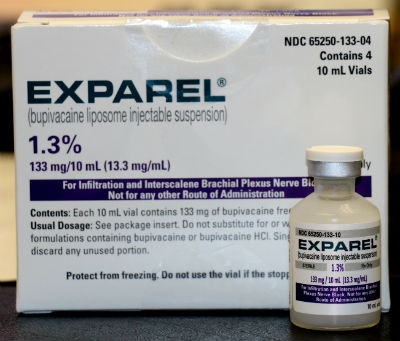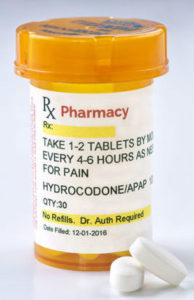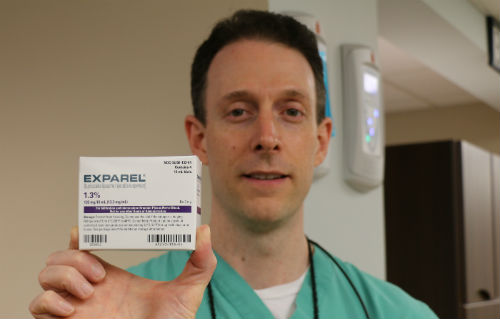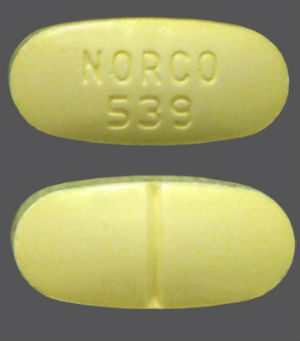
Norco – a common opioid pain medication
As a busy private practice dental office, we are constantly doing dentistry, which involves injections of local anesthesia. Like all dentists, we occasionally encounter a patient and/or tooth that is difficult to get numb. Along this theme, an increasingly common phenomenon we are observing involves difficulty in getting patients numb who are long time users of opioids (often called narcotics).
A common situation is a patient with chronic pain who has been taking an opioid type painkiller long term (such as Percocet, Oxycodone, Oxycontin, etc.). A dental procedure that requires effective local anesthesia is attempted on that patient. During the procedure, it is learned rather quickly that the patient is having difficulty either getting completely numb and/or staying numb. Why is that?
Opioids, Narcotics, Pain Pills, Etc.
The term opioid is derived from the word opium, which is a component of the opium poppy. The raw opium can be processed to produce morphine or heroin – both of which are powerful pain relievers. The term opioid simply means a medication that acts on the opioid receptor.

The opium poppy – the flower from which morphine and heroin are derived. Image courtesy wikipedia.
Millions of Americans take opioids for both acute and/or chronic pain. For those individuals who take them long term for chronic pain, a tolerance will develop, requiring larger doses. Large doses of opioids taken over time can lead to many long term effects. Many of those effects – constipation, dry mouth, etc. – are well documented. What is not well documented nor well researched is how long term use of these painkillers impacts the effectiveness of local anesthesia.
Long Term Opioid Use and Dental Local Anesthesia
Unfortunately, there is very little “official” information available for practicing dentists and dental students on which to rely. The most widely read and cited textbook on local anesthesia for dentists – A Handbook of Local Anesthesia – by Dr. Stanley Malamed – makes no mention of this phenomenon.
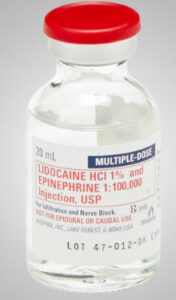
Multiple studies have shown lidocaine is less effective in opioid users.
However, a survey of recent research has shown multiple articles which directly and/or indirectly give support to this phenomenon:
- In this article, opium abusers were compared to non-abusers in their response to lidocaine (lidocaine has replaced novocaine as the local anesthetic of choice in dentistry). The abusers were found to require a longer amount of time for the lidocaine to work. And in addition, a greater amount of lidocaine was required.
- In this study involving rats, the administration of morphine (an opioid) resulted in a decrease in the potency of lidocaine.
- In another study involving opium vs. non opium users, chronic users experienced a shorter duration of local anesthesia than non users.
In fact, there is a specific term for a related phenomenon, which is Opioid Induced Hyperalgesia. Basically, those individuals who are chronic users can become MORE sensitive to painful stimuli.
However, despite all of these studies, there remains to be seen a widely accepted theory for a mechanism behind the local anesthesia resistance seen in these individuals.
What This Means for Dental Patients
Unfortunately, because this phenomenon is somewhat new and not well documented, not all dentists are aware of these issues. Some tips:
- Make sure your dentist is aware of your history. This includes patient with a past history of abuse who are on maintenance doses of naloxone or methadone.
- Don’t be afraid to say “I’m not numb” or “I can feel this.”
- If you are still uncomfortable, consider switching offices.
As a modern dental office, we’ve had success treating patients on chronic opioids with either buffered local anesthesia and/or IV sedation. So there are solutions out there – you just have to go out and find them.
